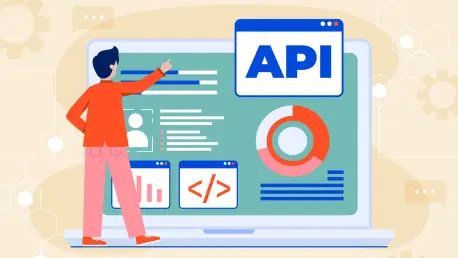In today’s rapidly advancing technological landscape, businesses are increasingly exploring methods to integrate Artificial Intelligence (AI) into their systems efficiently and seamlessly. A crucial component of this integration is the Model Communication Protocol (MCP), which is emerging as a standard for facilitating AI interactions with external services through a standardized interface. MCP empowers AI agents to dynamically discover and utilize a range of external tools, decoupling traditional API integration from the AI development process. This decoupling grants API providers the flexibility to modify back ends or introduce new operations without affecting AI client functionality. At the same time, AI developers benefit from a consistent protocol for accessing and combining services, paving the way for more versatile and innovative applications.
Key Solutions
FastAPI-MCP, one of the transformative solutions in this domain, provides an open-source extension to the FastAPI framework. This library integrates seamlessly into existing FastAPI applications, allowing developers to transform REST routes into MCP tools effortlessly. FastAPI-MCP retains all the native functionalities, including authentication and validation, while minimizing HTTP overhead to ensure high performance. It leverages Python’s robust ecosystem, making it highly appealing to developers who seek full control over their API transformations.
An alternative approach comes in the form of RapidMCP, which offers a zero-code solution for businesses aiming to convert REST APIs into MCP servers. This service stands out for its simplicity and efficiency, particularly benefiting those who prefer a managed, hands-off approach. RapidMCP uses OpenAPI specifications to facilitate the conversion process, enabling users to turn APIs into MCP-compatible services without altering the backend code. It provides detailed usage analytics and rate-limiting features, making it an excellent choice for API providers needing robust monitoring and scaling capabilities.
No-Code and Code-Driven Approaches
In the realm of no-code solutions, MCPify offers an intuitive platform designed for non-experts. This service allows users to describe desired functionalities in plain language, which are then automatically converted into MCP tools. Ideal for rapid prototyping, MCPify supports one-click deployment and handles all protocol intricacies behind the scenes. This platform’s user-friendly nature democratizes AI integration, enabling even those without technical backgrounds to create services accessible to AI agents effortlessly.
Conversely, Speakeasy provides a more code-driven strategy tailored for development teams with established workflows. Utilizing OpenAPI specs, Speakeasy generates both TypeScript MCP servers and client SDKs to integrate MCP seamlessly into existing processes. This tool is particularly beneficial for teams requiring customization and detailed control, as it enables the tailoring of MCP interactions within complex environments. The focus on generating comprehensible client libraries and accompanying documentation ensures developers have a comprehensive toolkit for scalable AI integration.
Large-Scale and Framework-Specific Solutions
Higress MCP Marketplace appeals to large enterprises looking to leverage the sheer scale and configurability of open-source API gateways such as Envoy and Istio. This solution extends these well-established tools to support the MCP protocol, enabling organizations to configure and deploy numerous APIs as MCP servers. Centralized governance features and a public MCP marketplace allow for streamlined management and exposure of APIs, aligning perfectly with enterprise needs for comprehensive oversight and scalability.
For organizations already invested in the Django ecosystem, Django-MCP offers a specialized solution by introducing MCP functionality to the Django REST Framework (DRF). This plugin enables DRF endpoints to be easily translated into MCP tools by applying specific mixins or using an MCP router with minimal additional coding. Leveraging Django’s robust authentication and validation mechanisms, Django-MCP is tailored for development teams keen on maintaining their tested frameworks while enhancing services with AI-ready capabilities.
Compatibility with GraphQL and gRPC
The demand for compatibility with diverse communication protocols is crucial in modern AI-driven applications, and tools like GraphQL-MCP cater specifically to organizations utilizing GraphQL. This library seamlessly converts GraphQL queries and mutations into MCP tools, maintaining the integrity and functionality of existing GraphQL schemas. By supporting features such as batching, authentication, and schema stitching, GraphQL-MCP ensures a harmonious transition into the MCP framework, facilitating increased interaction between AI agents and GraphQL-powered services.
Lastly, gRPC-MCP addresses the integration of low-latency, strongly-typed services into the MCP ecosystem, bridging the gap between gRPC’s protocol buffers and JSON-RPC-style calls. By implementing a small adapter within gRPC servers, developers can expose gRPC services to AI agents efficiently. This solution is particularly important for performance-focused applications where latency and type safety are paramount, offering a seamless method for incorporating gRPC capabilities into AI-driven workflows.
Shaping the Future of AI and API Integration
The outlined array of solutions and approaches marks a significant evolution in the interaction between AI and API systems, ushering in dynamic and flexible technological advancements. By adhering to the continuously evolving MCP specification, these tools empower API providers and developers to streamline and optimize workflows driven by artificial intelligence. This allows businesses the flexibility to choose between the ease of no-code solutions and the customization opportunities offered by code-driven approaches, making it possible to satisfy varied development preferences and needs across the industry. As the technological landscape persistently evolves, the potential to craft more sophisticated, responsive, and integrated AI applications is expected to expand, enabling businesses to leverage the full power of AI innovation. This growing integration not only transforms the way businesses operate but also opens doors to new efficiencies and capabilities. The ability to blend AI with APIs allows companies to innovate at a faster pace and adapt seamlessly to changing market demands, showcasing the transformative potential of these technologies. As AI applications become more ingrained in business operations, the benefits of such integration become increasingly significant, offering new avenues for growth and success.









